Brexit has put ingredients prices under pressure, but this is unlikely to dampen the enthusiasm bakers and their customers have for fruits, nuts and seeds
No baker needs to be told what impact the Brexit referendum has already had on their business; the odds are their key ingredients are costing them more than they were a year ago.
Weakened sterling has driven up the price British businesses pay for imported ingredients, including the fruits, nuts and seeds that feature in so many modern baked goods. Licensed and own-label cake specialist Finsbury Foods and Mr Kipling owner Premier Foods are among business that have said prices rises are inevitable in the face of rising input costs.
And in a survey of bakery businesses conducted for British Baker’s 2017 Bakery Market Report, 56% of businesses said they felt the Brexit referendum had had a direct effect on the cost of ingredients.
Under such circumstances, it is tempting for businesses to engineer costs by switching to lower-quality ingredients or smaller quantities of inclusions. Ingredients supplier Bakels says it is not taking this course, despite increases in the costs of the sunflower, pumpkin and linseeds that form part of its best-selling Multiseed Bread Concentrate, first rolled out 12 years ago.
“The consistent taste and flavour [of Multiseed] over the years has customers coming back for more,” Michael Schofield, marketing manager for Bakels, tells British Baker. “As a result, Bakels will not consider reducing the quantity or quality of the seeds used to offset the cost increases.
“Multiseed will continue to use the same ingredients bakers know and which fully satisfies their customers. Consistent with Bakels’ mission statement of ‘helping bakers sell more bakery products’, Bakels will continue to provide extensive business development support to their customers.”
Of course, currency is by no means the only factor to influence ingredients costs, as Andy Lewis, marketing manager for ingredients supplier RM Curtis, explains. Other factors include how successful a country’s harvest is within a given year, the impact of extreme weather conditions, quality issues and surplus volume from other areas affecting overall demand.
“Fluctuations in cost across the different ingredient groupings means this can certainly help manage cost pressures, but it is very hard to predict how prices will change across the year,” Lewis tells British Baker. “As a major supplier to the bakery sector, we work hard throughout the year within our purchasing and planning functions to build strong partnerships abroad to secure ingredients at the required specification with costs that limit as much as possible the need to increase prices, but this is sometimes unavoidable.”
And despite price hikes, there’s little sign that bakers are losing their interest in seeded products. Chia seeds have become a popular seed inclusion for bread, with The Polish Bakery recently crowned overall winner of the People’s Choice Quality Food Awards in London for its Chia Seeds bread range. “We’re always leaning towards health trends and more consumers are aware of this, especially chia seeds,” says The Polish Bakery managing director Agnes Gabriel-Damaz.
Mainstream bakers are also continuing their love-affair with seeded loaves. Seeds feature in the revamped Allinson brand, launched by Allied Bakeries this year, for example. The company is hoping the reformulation can bridge the gap between wrapped bread and craft bakery.
“Offering seeded breads is an easy way to stand out from competition and add a bespoke touch to the menu,” says chef Morgan Larsson at CSM Bakery Solutions. “The beauty of these breads is that various ingredients can be added, depending on the tastes of your customer base – from fruit additions to various types of seeds, which are perfect for a healthier product.”
Nuts, meanwhile, will offer ways to tap some of the big food trends. A report researched and compiled by bakers from food ingredients manufacturer Macphie, identified key flavours for 2017 including:
- Peanut butter: “Made popular by celebrity health experts naming it a ‘healthy fat’, peanut butter is all the rage.”
- Pistachio: “Pistachios are adding texture and colour to cakes, brownies, doughnuts, salads and sandwiches… brightening up dishes without using artificial colours.”
- Coconut: “Packed into loaf cakes and canelés, coconut remains a popular ingredient that provides a smooth, sweet taste when combined with the right flavours, including passion fruit and pineapple.
Fruits, nuts and seeds are also continuing to be popular choices as retail products, with value sales up almost 3% year on year to £1.02bn (Kantar Worldpanel 52 w/e 1 January 2017).
In line with the health trends driving much innovation in the baking industry, growth is being driven by natural nuts such as unsalted peanuts and cashews, with sales up £33.5m year on year. Flaxseeds, chia seeds and grains are also making gains as shoppers look for healthy snacks.
Overall sales of seeds have grown 6.3% by value, with interest driven by transportable snack-pack formats such as the Whitworths’ Shots range.
Across the category, value sales are growing significantly faster than volume, according to Kantar Worldpanel analyst Andrew McGarry. “Nuts have been a key driver, with prices up from £7.48 to £7.67 overall. A key reason for this has been the strong performance of natural nuts – these products have a far higher price point than snacking or baking products.”
McGarry adds that if the trend towards more natural products continues, then average prices can be expected to rise further in the coming year.
Fruit, Nuts & Seeds Pricing Trends
Almonds
Season to date: Origin pricing was stable, but since the bloom was disappointing, the 2017 crop may be smaller than last year, compounded by concerns over the Spanish bloom.
Prospects to next harvest: Pricing expected to remain stable to firm. A large current crop is offsetting longer-term concerns, but competitive pricing against other tree nuts is boosting demand.
Hazels
Season to date: Pricing in Turkey was very firm due to a reduction in supply versus last year. With a weaker currency post-Brexit, the impact on UK delivered pricing was severe. Since then, pricing has eased.
Prospects to next harvest: The key in the short term is how the bloom across NE Turkey plays out: any frost will trigger price rises, while benign weather could mean weaker prices.
Pecans
Season to date: Pre-Christmas, many buyers did not cover needs for 2017 in anticipation of a large crop and lower pricing, but the harvest was disappointing. Supported by some panic buying, prices were firm and remained so.
Prospects to next harvest: It is hard to see any major price downside for the rest of this season, given a short crop and underlying strong demand.
Walnuts
Season to date: On the back of a record Californian crop, early new crop prices offered the best chance to buy. Since then, strong demand has driven prices higher and continued to do so. Disappointing crops in India and eastern Europe have also resulted in firmer pricing.
Prospects to next harvest: Supply and demand imbalance will likely keep an upward pressure on pricing.
Brazils
Season to date: While reports on crop size on the new season out of Bolivia vary, the drop on last year’s is between 30% and 70%. As a result, prices are firming.
Prospects to next harvest: Depending on the extent of this shortage, it looks highly likely supply will dry up some way before the end of this season. There is firmer pricing ongoing.
Sultanas/Raisins
Season to date: The big crop was welcome news and a tonic to offset the currency devaluation post-Brexit. Origin prices have also softened as the lira weakened against the US dollar.
Prospects to next harvest: There is a chance the new crop will be smaller than the current one on a bigger/smaller cycle, so medium- to longer-term price increases seem likely.
Currants
Season to date: There was a short crop from Greece, so prices began to increase rapidly and supplies were pushed to their limit. This has resulted in reports of many defaults from the growers to the processors.
Prospects to next harvest: Prices are unlikely to weaken before the new crop harvest in August and it is likely supply could dry up before then.
Apricots
Season to date: A big crop in Turkey resulted in weakening prices, offsetting the impact of the devaluation of sterling against the US dollar. Since early 2017, however, origin pricing has been firming.
Prospects to next harvest: The next three months will see pricing nervous at best and firmer at worst. A good new crop with a strong carry-in should result in lower prices.
Pumpkin seeds
Season to date: Strong supply from China has resulted in competitive pricing since early 2017 and helped offset the impact to UK buyers of sterling. Pricing is set to remain stable.
Prospects to next harvest: China plays a canny game and, to bring strength to this market, will almost certainly reduce plantings for next year’s crop and manipulate an increase on longer-term prices.
Sunflower seeds
Season to date: A reported drop in the new crop from Bulgaria over the last quarter of 2016, followed by a cold January, combined to see prices rising over Q1, supported by increasing demand.
Prospects to next harvest: Supply for the remainder of this season should be adequate for demand, so pricing will be as much affected by currency as by any other factor.






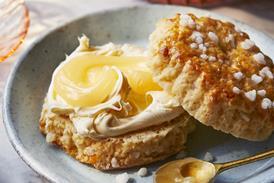

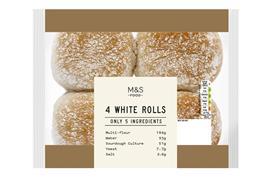







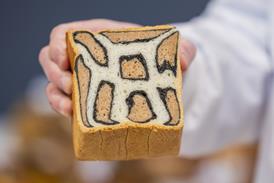

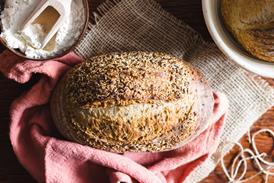

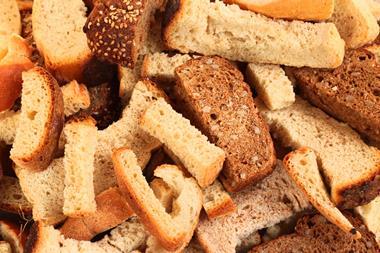
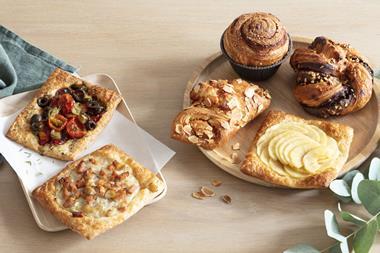

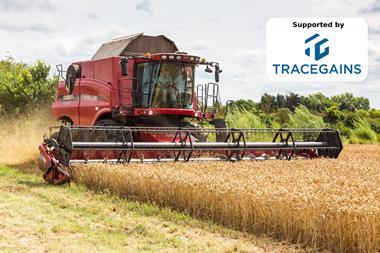


No comments yet